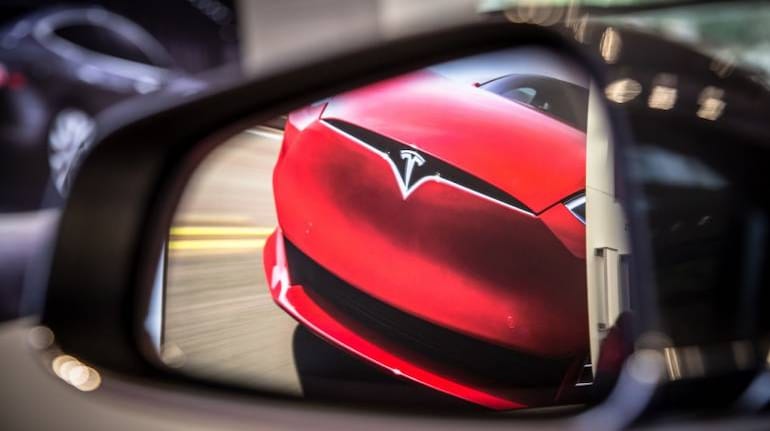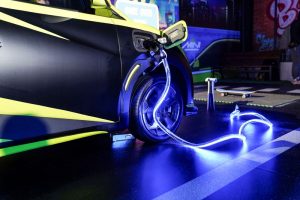US electric vehicle (EV) maker Tesla has sued a Chinese chip designer and auto parts maker for infringing upon its intellectual property (IP) and stealing technology secrets, Chinese media reported on Wednesday.
State media Shanghai Securities Journal (SSJ) first reported Tesla’s lawsuit against Bingling Intelligent Technology, saying the cause of the case was “infringement of technical secrets and unfair competition disputes.”
Tech news portal Pandaily also reported the lawsuit, saying Tesla accused Bingling of violating its IP rights in integrated circuit chip design and stealing the carmaker’s tech secrets.
Also on AF: Huawei’s Chip Breakthrough ‘May Spur Tougher US Tech Curbs’
The lawsuit is set to be heard in the Shanghai Intellectual Property Court on October 10, both reports said.
Jiangsu-based Bingling specialises in the automative industry, with its main offering being energy efficiency management sensors that are used for “battery system management, motor drive control, and power modules,” the SSJ report said.
Among Bingling’s major backers is Chinese electronics giant Xiaomi, whose investment fund unit acquired 11.9% shares of the company in March 2023, the report said, citing data from Chinese business platform Tianyancha.
That made Xiaomi Intelligent Manufacturing Fund the second largest shareholder of Bingling, it added.
Xiaomi’s EV ambitions
The Pandaily report noted that given the extent of its shareholding in Bingling, Xiaomi may “influence” the lawsuit’s conclusion.
Tesla’s lawsuit also comes at a crucial time for Beijing-based Xiaomi, which won the approval of China’s state planner to manufacture EVs just last month.
Xiaomi’s venture was only the fourth since end-2017 to win approval from China’s National Development and Reform Commission (NDRC).
The approval came more than two years after the smartphone giant announced plans to venture into the production of EVs. The long-delayed approval meant that Xiaomi would be entering China’s car market at a time when it is already dealing with a capacity glut and slowing demand.
A bruising price war, initiated by Tesla, has further hit supplier margins in the world’s largest auto market.
Nevertheless, Xiaomi has pledged a $10-billion investment over a decade in the automobile business and set a goal of mass producing its first cars in the first half of 2024.
- Reuters, with additional inputs from Vishakha Saxena
Also read:
Tesla Unveils its Revamped Model 3 Sedan at Beijing Trade Fair
Tesla to See Record Quarter for China Sales, But Market Share Cut
Hyundai, Honda Partner EV Rivals to Take on Tesla Supercharger
‘Local Protectionism’ Slowing China’s Clean Energy Transition
























